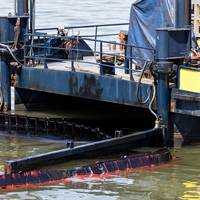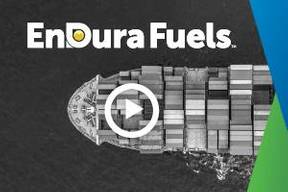Predictability, or “Call your Designated Responder Early and Often”

Predictability is the aim of every human, company, or society.Humanity simply strives to increase its level of predictability whether as a person, or as a group of people. When humans attain a certain level of predictability, their hope for the future goes up and their level of anxiety goes down.Oddly, conservatives and progressives both strive for predictability, they just do it in different ways. A conservative will say: If nothing changes, then my predictability for the future will go up.
BV Backs S&T Ecomax Tanker Design
Leading international classification society Bureau Veritas and French shipowner Services & Transport have developed an Ecomax tanker design intended to address all the major causes of large oil spills. The Aframax design has two independent engine rooms, power supply systems and steering gear, increased hull scantlings, reduced high tensile steel content, duplicated navigation equipment with off-track monitoring and full inerting of all ballast spaces. The Ecotanker design is based initially on an Aframax vessel, but studies have also been done for larger and smaller vessels. same. The possibility of machinery and systems failure is addressed by duplicating the engine rooms, stern tubes, propellers, steering gears and rudders.
BV backs S&T Ecomax Tanker Design
International classification society Bureau Veritas and French shipowner Services & Transport have developed an Ecomax tanker design intended to address all the major causes of large oil spills. gear, increased hull scantlings, reduced high tensile steel content, duplicated navigation equipment with off-track monitoring and full inerting of all ballast spaces. "While smaller oil spills are getting less frequent, the occurrence of large spills due to tanker accidents is remaining constant," says Philippe Anslot, technical director of services & transports. "When we looked at the underlying causes of those spills we saw that the four main factors were machinery failure, navigation error, fire and explosion and hull damage.
BV backs S&T Ecomax Tanker Design
International classification society Bureau Veritas and French shipowner Services & Transport have developed an Ecomax tanker design intended to address all the major causes of large oil spills. gear, increased hull scantlings, reduced high tensile steel content, duplicated navigation equipment with off-track monitoring and full inerting of all ballast spaces. "While smaller oil spills are getting less frequent, the occurrence of large spills due to tanker accidents is remaining constant," says Philippe Anslot, technical director of services & transports. "When we looked at the underlying causes of those spills we saw that the four main factors were machinery failure, navigation error, fire and explosion and hull damage.
BV backs S&T Ecomax Tanker Design
Innovation on the tanker front comes from many venues, and one of the latest — the Ecomax tanker design — is offered from the minds and experience of a pair of French companies, classification society Bureau Veritas and shipowner Services & Transport. The new Aframax tanker design is intended to address all the major causes of large oil spills, and features two independent engine rooms, power supply systems and steering gear, increased hull scantlings, reduced high tensile steel content, duplicated navigation equipment with off-track monitoring and full inerting of all ballast spaces. "While smaller oil spills are getting less frequent, the occurrence of large spills due to tanker accidents is remaining constant," says Philippe Anslot, technical director of Services & Transports.
Marine Oil Spills and Response Options
Marine oil spills are subject to natural processes, which alter oil's physical and chemical properties. These factors ? as well as the type of oil spilled, the magnitude of the spill, and the physical conditions of the spill site ? determine the appropriate response for spill cleanup. Response options include mechanical recovery, chemical treatment and in-situ burning. Every spill scenario is unique and constantly changing. Careful assessment by experienced personnel is required for effective response performance. Natural spreading of the oil spill is a major factor in determining the response option most likely to succeed. The number and availability of personnel and equipment is also a major consideration.
Cost Benefit Study for Oil Spill Prevention
The USCG has issued its Regulatory Assessment: Use of Tugs to Protect Against Oil Spills in the Puget Sound Area. The assessment focuses on the risk of underway accidents leading to large oil spills involving cargo oils from tankers and tank barges, and bunker fuels from commercial vessels of 300 gross tons or greater. The primary geographic focus of the study is the Strait of Juan de Fuca and coastal waters within a 60 nautical mile radius of the entrance to the Strait. Assess the impact of risk management alternatives on small business. Eight alternatives for preventing and mitigating oil spills in the study region were evaluated, including the Internation Tug of Opportunity System (ITOS)…












